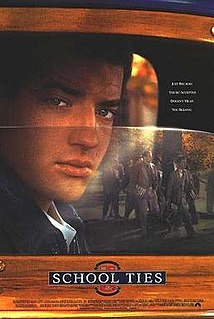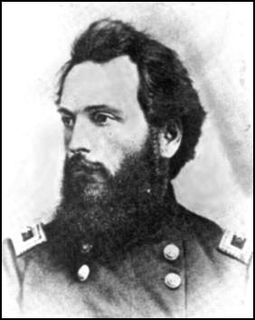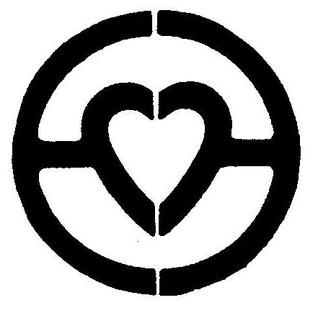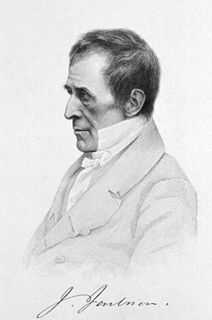
Lowell is a city in Massachusetts, in the United States. With Cambridge, Lowell is one of two traditional seats of Middlesex County With an estimated population of 115,554 in 2020, it was the fifth most populous city in Massachusetts as of the last census, and the second most populous in the Boston metropolitan statistical area. The city also is part of a smaller Massachusetts statistical area, called Greater Lowell, and of New England's Merrimack Valley region.

The University of Massachusetts Lowell is a public research university in Lowell, Massachusetts, with a satellite campus in Haverhill, Massachusetts. It is the northernmost member of the University of Massachusetts system and has been regionally accredited by the New England Commission of Higher Education (NECHE) since 1975. With 1,110 faculty members and over 18,000 students, it is the largest university in the Merrimack Valley and the second-largest public institution in the state. It is classified among "R2: Doctoral Universities – High research activity".
Vicks is an American brand of over-the-counter medications owned by the American companies Procter & Gamble and Helen of Troy Limited. Vicks manufactures NyQuil and its sister medication, DayQuil. The Vicks brand also produces Formula 44 cough medicines, cough drops, Vicks VapoRub, and a number of inhaled breathing treatments. For much of its history, Vicks products were manufactured by the family-owned company Richardson-Vicks, Inc., based in Greensboro, North Carolina. Richardson-Vicks, Inc., was eventually sold to Procter & Gamble in 1985. Procter & Gamble divested the Vicks VapoSteam U.S. liquid inhalant business and sold it to Helen of Troy in 2015.

School Ties is a 1992 American sports-drama film directed by Robert Mandel and starring Brendan Fraser, Matt Damon, Chris O'Donnell, Randall Batinkoff, Andrew Lowery, Cole Hauser, Ben Affleck, and Anthony Rapp. Fraser plays the lead role as David Greene, a Jewish high school student who is awarded an athletic scholarship to an elite preparatory school in his senior year.

Edward A. LeLacheur Park is a baseball park located on the banks of the Merrimack River in Lowell, Massachusetts. It is home to the UMass Lowell River Hawks baseball team, which competes in the America East Conference at the NCAA Division I level. It was home to the Lowell Spinners, previously the New York–Penn League Class A Short Season affiliate of the Boston Red Sox.

Charles Edward Hovey was an educator, college president, pension lobbyist and a brevet major general in the United States Army during the American Civil War.
The history of Lowell, Massachusetts, is closely tied to its location along the Pawtucket Falls of the Merrimack River, from being an important fishing ground for the Pennacook tribe to providing water power for the factories that formed the basis of the city's economy for a century. The city of Lowell was started in the 1820s as a money-making venture and social project referred to as "The Lowell Experiment", and quickly became the United States' largest textile center. However, within approximately a century, the decline and collapse of that industry in New England placed the city into a deep recession. Lowell's "rebirth", partially tied to Lowell National Historical Park, has made it a model for other former industrial towns, although the city continues to struggle with deindustrialization and suburbanization.

Sarah George Bagley was an American labor leader in New England during the 1840s; an advocate of shorter workdays for factory operatives and mechanics, she campaigned to make ten hours of labor per day the maximum in Massachusetts.

Kirk Boott was an American Industrialist instrumental in the early history of Lowell, Massachusetts.
The Proprietors of Locks and Canals on the Merrimack River is a limited liability corporation founded on June 27, 1792, making it one of the oldest corporations in the United States. Its named incorporators were Dudley Atkins Tyng, William Coombs, Joseph Tyler, Nicholas Johnson, and Joshua Carter.

John Lowell Jr. was an American lawyer and notable member of the Federalist Party in the early days of the United States of America.

The Beecham Group plc was a British pharmaceutical company. It was once a constituent of the FTSE 100 Index. Beecham, after having merged with American pharmaceutical company SmithKline Beckman to become SmithKline Beecham, merged with Glaxo Wellcome to become GlaxoSmithKline (GSK). GSK still uses the Beechams brand name in the UK for its over-the-counter cold and flu relief products.

Harriet Jane Farley was an American writer and abolitionist, editor of the Lowell Offering from 1842–1845, and editor of the New England Offering from 1847–1850.

James Jackson was an American physician. He was a proponent of Massachusetts General Hospital and became its first physician.
The New England Offering was a collection of journal entries that were written by female mill workers in New England mills. Many of the women who were contributing to the magazine were working in mills in Lowell, Massachusetts. The “Lowell Offering” was a collection of narratives where women shared their works in a intellectual and cultural publication. The contributors took great pride in the magazine. The “Lowell Offering” gained a great deal amount of popularity. It was read by famous writers such as Charles Dickens, Anthony Trollope, and George Sand. The “Lowell Offering” lost momentum after the opinions of the writers moved towards areas that mill owners did not agree with. The “New England Offering” was established after controversy with the Lowell Offering erupted and the editors Harriet Farley and Harriott F. Curtis had to discontinue the “Lowell Offering” and start a new magazine. The magazine's first issue appeared in September 1847, and Farley ended publication with the March 1850 issue.
Nathaniel Booth was an African American who escaped from slavery.
The William J. and John F.Kennedy College of Sciences at the University of Massachusetts Lowell is so named for the Kennedy family and their contributions to the campus. John F. Kennedy is an alumnus of the Lowell Technological Institute Class of 1970. The Lowell Technological Institute merged with the Lowell State College to become the University of Lowell in 1972. It joined the UMass system in 1991 to become Umass Lowell.

The 92nd Massachusetts General Court, consisting of the Massachusetts Senate and the Massachusetts House of Representatives, met in 1871 during the governorship of Republican William Claflin. Horace H. Coolidge served as president of the Senate and Harvey Jewell served as speaker of the House.

The 76th Massachusetts General Court, consisting of the Massachusetts Senate and the Massachusetts House of Representatives, met in 1855 during the governorship of Henry Gardner. Henry Wetherby Benchley served as president of the Senate and Daniel C. Eddy served as speaker of the House.
Epoetin theta, sold under the brand name Biopoin among others, is a copy of the human hormone erythropoietin.














